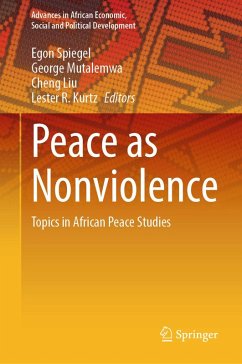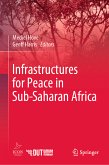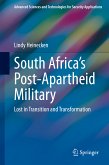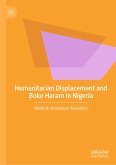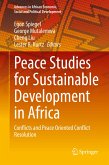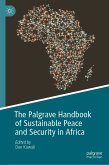The book is dedicated to students and teachers of Peace Studies and Development Studies at universities as well as civil society experts. They bear a great responsibility with regard to shaping the "Culture of Peace" called for by the UN, based on the foundation of peace education and peace work and in the context of an adequate peace policy. The book seeks to strengthen African pillars of lasting peace through Peace Studies. Analyzing the latest topics in Africa of universal importance, it offers a valuable reference guide for researchers and professionals grappling with the realities of nonviolence and other essential topics in Peace Studies.
Dieser Download kann aus rechtlichen Gründen nur mit Rechnungsadresse in A, B, BG, CY, CZ, D, DK, EW, E, FIN, F, GR, HR, H, IRL, I, LT, L, LR, M, NL, PL, P, R, S, SLO, SK ausgeliefert werden.

